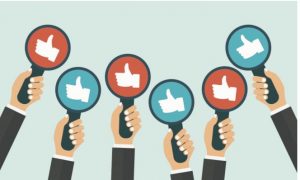
Take a Cue from Improv to Improve Your Listening Skills
Have you ever worked with a really poor listener? People who have poor listening skills are generally not difficult to spot. They are often easily

Have you ever worked with a really poor listener? People who have poor listening skills are generally not difficult to spot. They are often easily

When it comes to strong personal brands, great leaders understand the importance of relational skills. One way to measure this is quantitatively; that’s why likes,

Meetings, like death and taxes, are an inevitable fact of business life. Too many meetings, unfortunately, turn out to be a huge waste of time.

From what I see in the organizations where I consult, there’s an urgent need to understand leadership personality. Today―and especially for the future―we need leaders who can

It’s no secret: we follow leaders who engage and inspire us, relate to us and instill trust. But it certainly is surprising how often we

As a leader, how do you lower barricades your people face? Most people want to be productive and proud of their work. Oftentimes, circumstances beyond

Inspiration, a vision for the future, connecting to values and motivations—these are all important leadership roles. But without connecting the dots to what each person

From what I see in the organizations where I consult, we must prepare today’s leaders for an uncertain future. For progress to occur in nondestructive ways,

An organization’s health is only as sound as its leader’s decisions. Some companies prosper from wise leadership directions, while others struggle after flawed choices—choices that

How a leader responds to adversity reveals how effective that leader truly is. Reactions to setbacks or crises not only test leadership character but define

Business is an active, demanding endeavor. Only those who consistently apply themselves succeed. Organizations that thrive require leaders who actively dream, plan, engage, solve, pursue,

Surveys and studies indicate global job dissatisfaction is at a two-decade high. Disengaged employees account for nearly 70 percent of the workforce, which significantly affects







